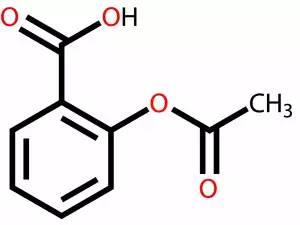Omega 3 fatty acids are healthy fats that help prevent a wide range of health problems, including cardiovascular disease, depression, asthma and rheumatoid arthritis. Omega 3 and Omega 6 fatty acids are essential for many biochemical processes in the body.
Unlike the saturated fat found in butter and lard, omega 3 fatty acids are polyunsaturated. Polyunsaturated fats are liquid at room temperature and remain liquid even chilled or frozen.
The three most important dietary omega-3 fatty acids are alpha-linolenic acid, eicosapentaenoic acid and docosahexaenoic acid. These fatty acids are classified as "essential" because the body is able to use them and they play a major role in various physiological functions.
Balance in the body occurs when omega 3 and omega 6 fatty acids are in a 1:1 ratio. These fats are called essential because our body can not swap them from other substances. It is known that the human body synthesizes omega 3 faster if this synthesis occurs in parallel with the synthesis of omega 6 fatty acids.
Functions of Omega 3 fatty acids
- Support the strength of cell membranes. To perform their functions optimally cell membranes must maintain their integrity and smoothness. Cells without a healthy membrane lose their ability to hold water and vital nutrients. They also lose their ability to communicate with other cells, which is one of the physiological events that leads to the growth of cancerous tumors.
Because cell membranes are composed of fats, integrity and strength is largely determined by the type of fat you consume. Since omega-3 fats are liquid at room temperature, they lead to the maintenance of cell membranes with a high degree of liquefaction.
- Production of prostaglandin - Omega 3 fatty acids play an important role in the production of powerful hormone-like substances called prostaglandins. They help regulate many important physiological functions, including blood pressure, blood clotting, inflammation and allergic reactions, the functions of the kidneys and gastrointestinal tract as well as the production of other hormones.
- Anti-inflammatory processes - omega 3 fats provide anti-inflammatory effect on joints and improve blood flow.
Benefits of Omega 3 fatty acids
High dietary intake of omega 3 fats, particularly fish, can lead to lower blood pressure. There are claims that omega-3 fatty acids can increase growth hormone levels, which can increase the growth of muscle, which in turn causes the acid to be accepted by athletes.
It is believed that omega 3 dulls pain in people who suffer from rheumatoid arthritis. Also have anti-inflammatory action roll play a preventive for cancer tumors, whereas hypotheses that prevent the onset of breast, colon and prostate. Some experts believe that omega 3 fatty acids lowers LDL cholesterol.
Omega 3 fatty acids may play an important role in the prevention and/or treatment of the following diseases: Alzheimer's disease, asthma, bipolar disorder, cancer, cardiovascular disease, depression, diabetes, eczema, high blood pressure, migraine, multiple sclerosis, obesity, osteoporosis, psoriasis, rheumatoid arthritis and others.

Sources of omega 3 fatty acids
Salmon, flax seeds and walnuts are excellent sources of omega 3 fatty acids. Many good sources of these healthy fats are: scallops, cauliflower, cabbage, cloves and mustard seed. Good sources include: halibut, shrimp, cod, tuna, soybeans, tofu, kale and Brussels sprouts, the plant sage, acai, algae, flax seed oil, purslane (Portulaca oleracea), spinach and canola oil.
As food additives, omega 3 fatty acids are available as capsules or bottled liquid. Flaxseed oil, a rich source of alpha-linolenic acid, oil and cod liver oil, a rich source of two other types of omega 3 fatty acids are among the most common omega-3 supplements.
Deficiency of omega 3 fatty acids
Symptoms of deficiency of omega 3 fatty acids include fatigue, dry skin, itchy skin, brittle hair and nails, constipation, frequent colds, depression, poor concentration, lack of physical endurance and joint pain. You may get eczema, dandruff, excessive sweating, severe PMS and water retention.
Polyunsaturated fats, including omega-3 fatty acids are extremely susceptible to damage caused by heat, light and oxygen. When exposed to these elements for too long fatty acids oxidize or become rancid. Oxidized fatty acids produces free radicals, which are believed to play a role in the development of cancer and other degenerative diseases. vitamin E is an essential fat-soluble antioxidant that protects the omega-3 fats from oxidation.



















Comments